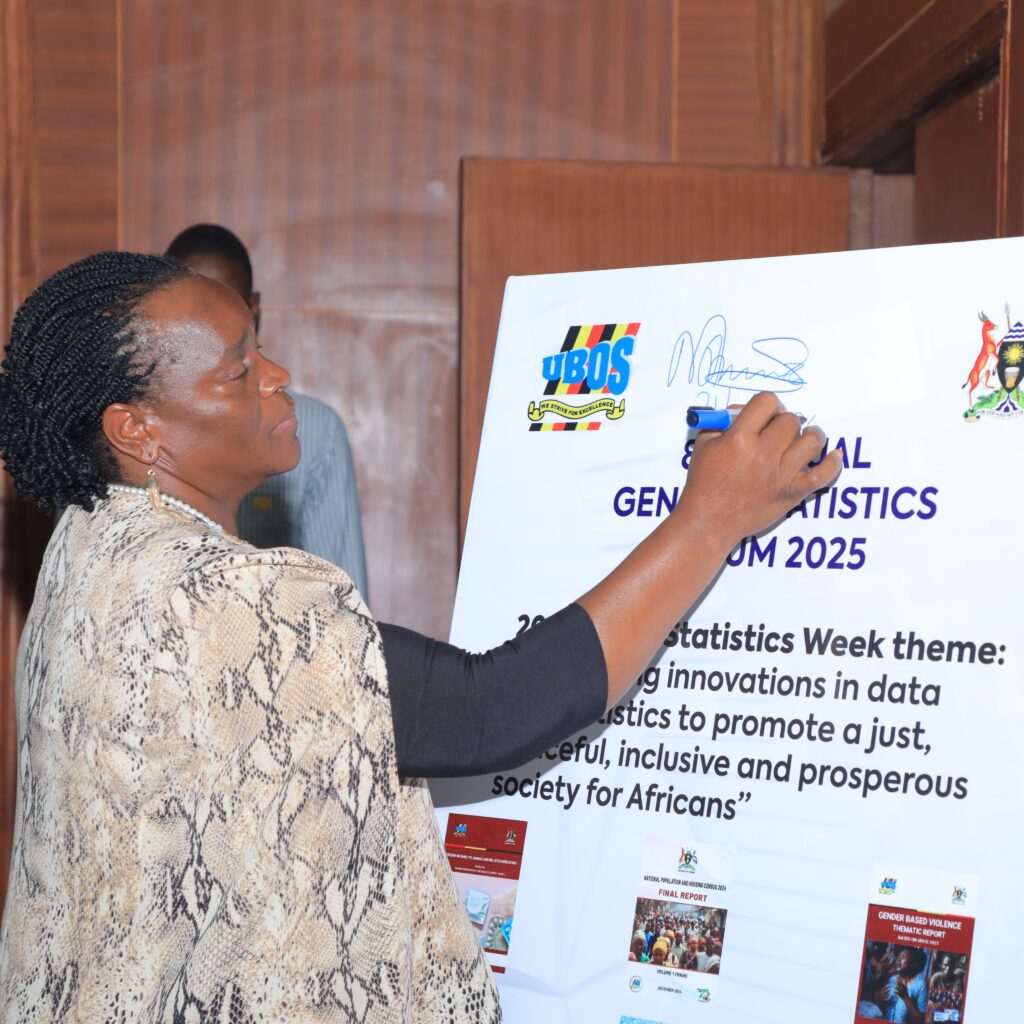State Minister for Gender & Culture Affairs Hon. Peace Mutuuzo,has called upon government to address the poverty gaps and ensure inclusive growth arguing that this will help achieve the Agenda 2040 and the SDGs”
Speaking at the launch of Uganda Bureau of Statistics Gender Statistics Report in Kampala,Mutuuzo called for the realisation of gender equality,saying uganda women still get low pay compared to their male counterparts in the job market despite Uganda having the second youngest population in the world,
“We need to train women and find sustainable employment for them thereby ensuring human capital development. This will help us remain firm and ensure peace and stability.”, she stated.
According to the minister Uganda has made significant progress in gender equality, with high levels of women’s representation in parliament and cabinet, and strong legal frameworks that support gender equality. However, challenges persist, particularly in economic participation, where gender gaps remain, and in addressing gender-based violence and unequal distribution of unpaid care work. Social and cultural norms, along with issues like the digital gender gap and climate change impacts, also continue to impede full equality.
Women hold nearly 44% of cabinet positions and approximately 34-35% of parliamentary seats, with increased leadership in public service.
The Chief Statistician, Dr. Chris N. Mukiza reiterated UBOS’s commitment to providing timely and accurate data to enhance evidence based planning.
He thanked Minister Mutuuzo for her commitment towards Gender concerns. He gifted her with a hamper in recognition of her effort.
the 8th Annual Gender Statistics Forum, brought together partners and stakeholders to deepen discussions on innovations that strengthen gender data systems and inform evidence-based policies.
According to Oweka Benson (UBOS), the Gender Statistics report 2023/24 reveals that 22.7% of Females suffered sickness or injury as compared to 19.6% of Males. 83% of these sought health care and this was mostly from private hospitals/clinics, followed by government health centres.
Oweka revelaed that Women with less, or no education at all experienced more physical violence in the past 12 months, as compared to their educated counterparts. Men aged 15-19 years experienced more violence compared to Women of the same age. More violence is experienced at the age of 25-29 years.
In terms of education 25% of Males and 21% of Females have never attended school claiming the Education is too expensive, while others are disabled, orphaned and just not willing. 10% of Females have left school due to pregnancy, not given for other reasons
Statistics also shows that there is a lower percentage of Females attaining education, as compared to Males.
This percentage grows slimmer as education level goes higher. 22.7% of Females have no formal education, while only 5.2% of Females pursue education beyond secondary level.
Despite the increase in the use of sanitary pads for age groups 15-19 (70.8%) and 20-24(74.8%), it is worryingly true that 13.1% and 12.4% respectively use a cloth while 3.8% and 2.9% respectively have nothing to use, when the season pops up.
Dr Amina Goloba aresearcher from Economic Policy Reesearch Centre attributed the situation to cultural norms and lack of will to implement the gender laws that exist in the country.
According to her,Women spend a disproportionately larger amount of time on unpaid domestic and care work compared to men.
Gender gaps have persisted in areas like non-agricultural wage employment and access to and control over productive resources like land.
“Despite legal measures, physical and sexual violence by intimate partners remains a significant issue. Sexual harassment in public spaces is also a common problem,”she stated.

